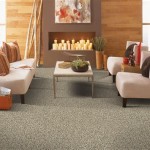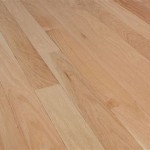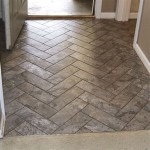Flooring Installers in Rapid City, SD: A Comprehensive Guide
Choosing the right flooring is a significant decision for homeowners and businesses alike. It impacts aesthetics, comfort, functionality, and property value. In Rapid City, South Dakota, a variety of flooring options are available, and the selection of a reliable flooring installer is crucial for a successful project. This article provides a detailed overview of flooring installers in Rapid City, covering various aspects from flooring types to installation considerations, ensuring a well-informed decision-making process.
The Rapid City area presents unique challenges and opportunities for flooring installation. The climate, characterized by cold winters and warm summers, necessitates careful consideration of material suitability. Furthermore, understanding local building codes and regulations is paramount for compliant installations. This guide aims to equip readers with the knowledge to navigate these factors effectively.
Understanding Flooring Types and Their Applications
The first step in any flooring project involves selecting the appropriate flooring type. Several options are available, each with distinct advantages and disadvantages. Common flooring materials found in Rapid City homes and businesses include hardwood, laminate, vinyl, tile, and carpet.
Hardwood Flooring: Known for its durability and timeless appeal, hardwood flooring adds significant value to a property. It comes in various wood species, each with unique grain patterns and color variations. Hardwood is a natural product, susceptible to expansion and contraction with changes in humidity. Therefore, proper acclimation before installation is essential, particularly in Rapid City's fluctuating climate. Engineered hardwood, a more dimensionally stable alternative, consists of a thin layer of hardwood veneer bonded to a plywood or fiberboard core. This construction makes it less prone to warping and cupping, making it a suitable option for basements or areas with higher moisture levels. Installation methods for hardwood include nailing, gluing, or floating, depending on the subfloor and the type of hardwood used.
Laminate Flooring: Laminate flooring offers a cost-effective alternative to hardwood, mimicking its appearance through a photographic layer protected by a durable wear layer. It is highly resistant to scratches, stains, and fading, making it a popular choice for high-traffic areas and households with pets or children. Laminate flooring is generally easier to install than hardwood, typically utilizing a click-lock system that allows for a floating installation over a variety of subfloors. However, laminate is not as moisture-resistant as some other options and may not be suitable for bathrooms or laundry rooms unless specifically designed for wet environments. The durability and ease of maintenance make it a practical choice for many homeowners in Rapid City.
Vinyl Flooring: Vinyl flooring presents a versatile and resilient option available in various forms, including sheet vinyl, vinyl tile, and luxury vinyl planks (LVP). Sheet vinyl offers a seamless surface, making it highly water-resistant and suitable for bathrooms, kitchens, and laundry rooms. Vinyl tile and LVP mimic the look of tile or wood, offering a more realistic appearance than traditional sheet vinyl. LVP, in particular, has gained popularity due to its realistic textures, durability, and ease of installation. Vinyl flooring is generally easy to clean and maintain, making it a practical choice for busy households. It is also relatively affordable compared to hardwood or tile, making it a budget-friendly option.
Tile Flooring: Tile flooring, including ceramic, porcelain, and natural stone, is known for its durability, water resistance, and aesthetic appeal. Ceramic tile is a cost-effective option suitable for a wide range of applications, while porcelain tile is denser and more durable, making it ideal for high-traffic areas and outdoor use. Natural stone tiles, such as granite, marble, and slate, offer a luxurious and unique look but require more maintenance and sealing to prevent staining. Tile flooring is highly resistant to moisture and is an excellent choice for bathrooms, kitchens, and entryways. Proper installation of tile flooring requires careful preparation of the subfloor, precise layout, and the use of appropriate adhesives and grout. The grout lines require regular cleaning and sealing to prevent staining and mildew growth.
Carpet Flooring: Carpet provides warmth, comfort, and sound absorption, making it a popular choice for bedrooms, living rooms, and basements. It comes in various styles, colors, and fiber types, each with different levels of durability and stain resistance. Nylon carpet is known for its durability and resilience, while polyester carpet is more stain-resistant but less durable. Wool carpet is a natural fiber that offers excellent comfort and sound absorption but is more expensive and requires professional cleaning. Proper carpet installation involves stretching the carpet over a cushion pad to ensure a tight and smooth surface. Regular vacuuming and professional cleaning are necessary to maintain the appearance and hygiene of carpet flooring.
Factors to Consider When Choosing a Flooring Installer
Selecting the right flooring installer is as important as choosing the right flooring material. A qualified installer will ensure that the flooring is installed correctly, maximizing its lifespan and performance. Several factors should be considered when choosing a flooring installer in Rapid City, SD.
Licensing and Insurance: Ensuring that the flooring installer is properly licensed and insured is crucial for protecting the homeowner or business owner from liability. Licensing verifies that the installer has met certain qualifications and has the necessary knowledge and skills to perform the work. Insurance coverage, including general liability and workers' compensation, protects against financial losses in case of accidents or damages during the installation process. Requesting proof of licensing and insurance is a standard practice and a sign of a reputable contractor.
Experience and Expertise: The installer's experience and expertise in installing the specific type of flooring chosen are essential. An installer with years of experience is more likely to have encountered and resolved various installation challenges. Asking for references from previous clients and reviewing online reviews can provide valuable insights into the installer's track record. Inquiring about the installer's familiarity with local building codes and regulations is also important for ensuring compliance.
Reputation and Reviews: Checking online reviews and asking for referrals from friends, family, or neighbors can provide valuable information about the installer's reputation. Websites like Google, Yelp, and Angie's List offer platforms for customers to share their experiences with local businesses. Pay attention to both positive and negative reviews, and consider how the installer responds to criticism. A reputable installer will have a history of satisfied customers and a willingness to address any concerns or issues that may arise.
Estimates and Contracts: Obtaining multiple estimates from different flooring installers is essential for comparing prices and services. A detailed estimate should include the cost of materials, labor, and any additional fees. Reviewing the contract carefully before signing is crucial for understanding the scope of work, payment terms, and warranty information. The contract should clearly outline the responsibilities of both the installer and the client, and it should provide a mechanism for resolving disputes. Avoid installers who are unwilling to provide a written estimate or contract.
Warranty and Guarantees: A reputable flooring installer will offer a warranty on their workmanship, covering any defects or issues that may arise after the installation. The warranty should specify the duration of coverage and the types of issues that are covered. Additionally, the flooring manufacturer may offer a separate warranty on the flooring materials themselves. Understanding the warranty terms and conditions is important for protecting your investment. Inquire about the installer's policy on addressing warranty claims and ensuring customer satisfaction.
Pre-Installation Preparation and Post-Installation Care
Proper preparation before installation and ongoing care after installation are essential for maximizing the lifespan and performance of the flooring. This involves several key steps that should be coordinated between the homeowner and the flooring installer.
Subfloor Preparation: The subfloor provides the foundation for the new flooring, and its condition is crucial for a successful installation. A level and stable subfloor is essential for preventing unevenness, squeaking, or other issues. The installer will inspect the subfloor for any cracks, moisture problems, or other defects and make necessary repairs before installing the new flooring. This may involve leveling the subfloor with a self-leveling compound, repairing cracks or holes, or installing a moisture barrier. Neglecting subfloor preparation can lead to premature failure of the new flooring.
Acclimation: Many flooring materials, particularly hardwood and laminate, require acclimation to the environment before installation. Acclimation involves allowing the flooring materials to adjust to the temperature and humidity levels of the installation area. This helps to prevent expansion and contraction after installation, which can lead to warping, cupping, or gapping. The installer will typically recommend a specific acclimation period, which may vary depending on the type of flooring and the climate conditions. Following the acclimation guidelines is essential for ensuring a stable and long-lasting installation.
Room Preparation: Before the installation begins, the room should be cleared of all furniture, appliances, and other items. This will provide the installer with unobstructed access to the subfloor and allow for efficient installation. The installer may also recommend removing baseboards and moldings, which can be reinstalled after the flooring is complete. Protecting adjacent areas from dust and debris is also important, and plastic sheeting can be used to cover doorways and furniture. Clear communication with the installer regarding room preparation requirements is essential for minimizing disruption and ensuring a smooth installation process.
Post-Installation Cleaning and Maintenance: After the installation is complete, the installer will typically provide recommendations for cleaning and maintaining the new flooring. Regular cleaning with appropriate cleaning products is essential for removing dirt, dust, and debris. Avoid using harsh chemicals or abrasive cleaners that could damage the flooring surface. Depending on the type of flooring, periodic maintenance may also be required, such as sealing grout lines, refinishing hardwood floors, or applying a protective coating to vinyl flooring. Following the manufacturer's recommendations for cleaning and maintenance will help to prolong the life of the flooring and keep it looking its best.
Addressing Issues and Concerns: Even with careful planning and installation, issues or concerns may arise after the flooring is complete. Communicating any concerns to the installer promptly is essential for addressing them in a timely manner. A reputable installer will be responsive to customer concerns and willing to work to resolve any issues that may arise. Reviewing the warranty terms and conditions is important for understanding the coverage and the process for filing a claim. Documenting any issues with photographs or videos can also be helpful for supporting a warranty claim. Maintaining clear communication with the installer and following the warranty procedures will help to ensure a satisfactory resolution.

Our Flooring Store In Rapid City Sd Altimate

Our Flooring Store In Rapid City Sd Altimate

About Our Flooring Store In Rapid City Sd Altimate

Our Flooring Store In Rapid City Sd Altimate

Our Flooring Store In Rapid City Sd Altimate

Our Flooring Store In Rapid City Sd Altimate

New Flooring Installation Contractor In Rapid City Sd

About Freed S Floors Your Local Flooring Store

Carpet And Flooring Store In Rapid City Sd One Floor Home

Carpet And Flooring Store In Rapid City








